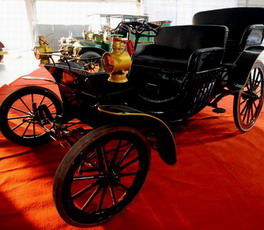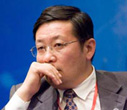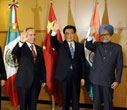From the Readers
A third way to common-pool resources
(China Daily)
Updated: 2009-10-20 10:05
A third way to common-pool resources
The awarding of the Nobel Prize for economics to Elinor Ostrom and Oliver Williamson came as a surprise to the public and the economists. Both are outside the establishment of neo-liberal economics and did research without the quantitative formality. Ostrom is not only the first woman, but also the first political scientist to win the prize - she got her PhD as a student of political science at UCLA.
Ostrom's contribution is on the management and usage of common-pool resources. Contrary to the "tragedy of commons" argument of prominent ecologist Garrett Hardin, that people tend to overuse collective-owned resources such as pasture or fishery, Ostrom found out that, through her field works in many parts of the world, communities are able to formulate institutions to use and preserve public resources properly and avoid depletion. While traditional wisdom tells us that common-pool resources should either be privatized or subject to state regulation, Ostrom suggested that there is a third way.
That's why Ostrom's theory is thought-provoking and broadens our understanding on ways to resolve resource-distribution problems. Thinking outside the dichotomy of the state and the market, power and exchange, Ostrom revealed that a third type of institutions such as local communities can manage and preserve natural resources, too.
Like Ostrom, Williamson devoted most of his research on the institutions other than government and market. One of his interests is corporations. He tried to explain that it is sometimes economically more efficient and rational to internalize transactions into corporations rather than to outsource them in the market. The more complicated a transaction is, the more economic to internalize it.
Obviously, the Royal Swedish Academy of Sciences awarded the economists who think outside the neo-liberal box. Similar to the prizes to Friedrich Hayek and Milton Friedman in 1970s, the selection may reflect the change of tide in the field of economics and even the whole social sciences.
Alex Niu
via e-mail







